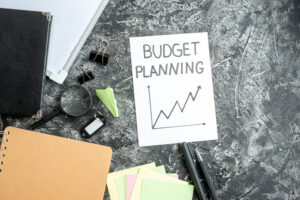UAE residents have to manage some special financial opportunities and challenges. A lack of income tax, high salaries and strong economic growth help residents achieve great results in wealth building. Yet, the high prices and ease of getting luxury items can quickly cause someone to overspend in the UAE. If you are in the UAE, it is important to plan a budget that fits well with the local economy for lasting financial success.
Exploring Your UAE Monthly Budget
Your personal finance journey in the UAE should start by checking all the elements in your compensation package. Many workplaces include housing money, benefits for travel costs, school fees for kids, and annual flight tickets in their package. Add all your allowances and benefits to your salary when figuring out what you earn each month. Some residents only budget with their basic salary, leaving out the important and regular allowances they earn.
The great majority of your benefits package will be worth 25-50% of your full compensation. The range for transportation allowance is AED 1,000 to AED 3,000 a month. Every child in school can receive up to AED 50,000 in education allowance every year. When you list all your income, you get a good starting point for managing your money properly.
Necessary Costs in the United Arab Emirates
In many cases, housing is the biggest expense for UAE residents, using up around 30-40% of their earnings. If you get a housing allowance or if you furnish it yourself, remember to budget for your DEWA, municipality and housing deposits. It’s easy for people to overlook the high utility bills they’ll face over the warm summer months, thanks to frequent air conditioning use.
How much you pay for transportation depends a lot on your location and the way you live. The Dubai Metro and bus network are low-cost, yet driving a car requires registering it, buying insurance, buying fuel and finding places to park. Daily commuters often find that tolls and parking fees in business areas add up.
How to Create a Realistic Budget in the UAE
Start by tracking your actual spending for one month before creating any budget. Many residents discover that their spending patterns differ significantly from their assumptions. Use banking apps or expense tracking tools to monitor every transaction, from small coffee purchases to major shopping expenses.
How to create a realistic budget in the UAE involves the 50/30/20 rule adapted for local conditions. Allocate 50% of income for essential expenses like housing, utilities, food, and transportation. Dedicate 30% for discretionary spending, including dining out, entertainment, and shopping. Reserve 20% for savings and investments, though many financial advisors recommend increasing savings rates in the UAE due to career uncertainty and eventual repatriation plans.
Managing Discretionary Spending
UAE’s consumer culture makes discretionary spending management crucial for budget success. Shopping festivals, luxury malls, and social dining create constant spending temptations. Set specific monthly limits for entertainment, shopping, and dining out rather than making spontaneous decisions.
Consider implementing a waiting period for non-essential purchases over AED 500. Often, the initial desire fades, preventing impulse buying that derails monthly budgets. Take advantage of seasonal sales and discount periods for planned purchases rather than paying full price throughout the year.


No Comments